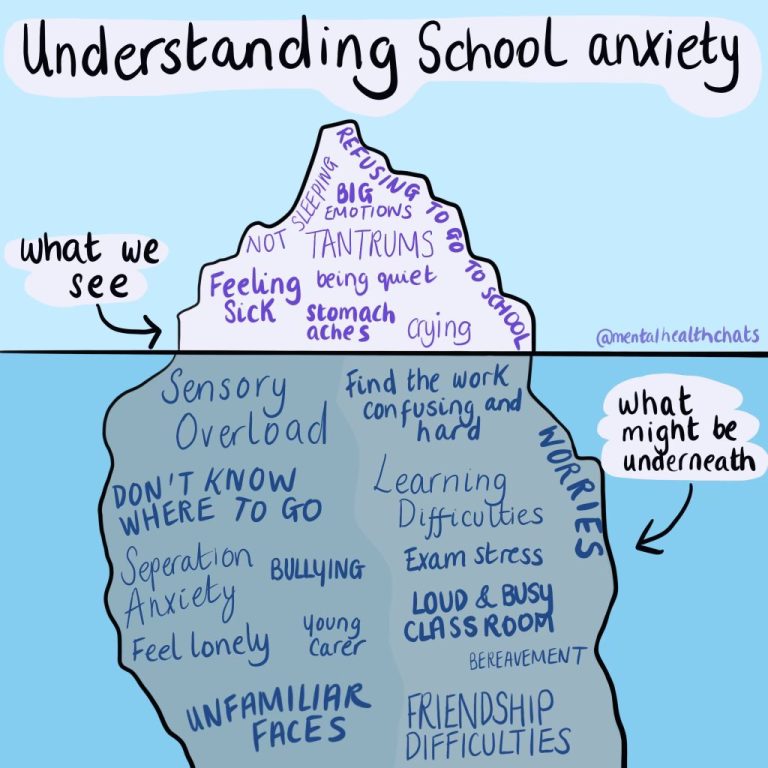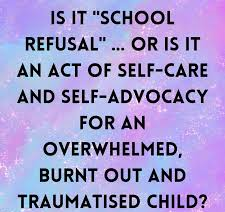School Refusal: A Serious Challenge Beyond the Morning Routine

As the new school year is a few weeks in, parents are likely feeling a mix of emotions. On one hand, there’s a hint of sadness as the long, carefree days of summer slip away, although I’m sure we’d all agree that ‘summer’ seemed to pass us by this year with decided lack of sunny days, especially here on the island. While lazy afternoons and family outings are a cherished part of the season, I’m sure many parents are secretly relieved to see the end of the summer holidays, with the cries of “I’m bored!” finally coming to an end!
Now, as children head back to school, the drudge of getting them up on time, organising lunchboxes, packing bookbags, finding ‘lost’ PE kits and rushing through the morning routine takes centre-stage. These early morning struggles often come with grumbles and moans from kids (and no doubt the parents) who would much rather be sleeping in. For most families, this is a normal and all too familiar scene as part of the back-to-school transition.
However, there’s a line between the typical complaints of early mornings and something much more serious: school refusal.
What is School Refusal?
School refusal is more than just a child moaning about getting up for school. It’s a complex and often distressing condition where a child experiences significant emotional distress at the thought of attending school. This goes beyond typical anxiety about tests or friendship dynamics – it can lead to frequent absences, complaints like headaches or stomach aches, and emotional outbursts when the topic of school comes up.
Unlike simple reluctance, school refusal involves an intense emotional reaction that keeps the child from attending school. It’s a serious issue that, if not addressed, can lead to long-term educational and emotional problems.
Signs of School Refusal
There are several signs that may indicate a child is experiencing school refusal rather than just the typical back-to-school blues:
Consistent anxiety – at the thought of attending school, often expressed in the morning or the night before.
Frequent physical complaints – such as headaches, nausea, or stomach aches that seem to appear only on school days. If the child is made to go to school, they will often visit the school nurse and not long after dropping them off to school, you’ll get a call to come and pick them up as they are unwell. Many parents consider these symptoms as ‘fake’ or ‘put on’, they aren’t though, they are a physical manifestation of anxiety and can feel very real to the child.
Sudden behavioural changes – like irritability, defiance, or sadness that intensify as the new school year progresses. Children may become clingy and start to exhibit signs of separation anxiety.
Tantrums or panic attacks – when it’s time to go to school, which can escalate into full-blown refusals.

Causes of School Refusal
The reasons behind school refusal can be varied and often linked. For some children, underlying anxiety is the driving force. This could be due to:
– Fear of separation from their parents.
– Academic stress, especially if they feel overwhelmed by schoolwork.
– Bullying or social anxiety, particularly if they have difficulty making friends or fitting in.
– Major changes, such as moving to a new school or transitioning to a new class level, or disruptions in the home environment.
For children living on the Isle of Man, the small community size can sometimes amplify these anxieties, as social circles are tight-knit, and news travels quickly. Children may worry more about fitting in, or they may struggle with the anxiety that stems from feeling more “visible” in such a closely connected environment.
What Parents Can Do to Help
As challenging as school refusal can be, there are several steps parents can take to support their child and address the root of the issue.

Listen to your child’s concerns – It’s easy to dismiss the situation as “just school nerves,” but taking time to understand their worries, whether about separation, academics, or social issues, can help you find the root cause.
Collaborate with the school – Teachers, counsellors, and even school administrators can offer support and insight. Sometimes small accommodations, like a mentor or a designated quiet space at school, can significantly reduce a child’s anxiety.
Establish a consistent routine – Children with school refusal often feel more secure when they know exactly what to expect. Set a regular bedtime, create a structured morning routine, and make sure to talk positively about school.
Consider professional support – For some families, child therapy can be a vital resource. Therapists trained in anxiety and school refusal can help a child develope coping mechanisms, work through their fears, and gradually become more comfortable with attending school.
What Not to Do!
While most parents want to shield their children from distress, there are a few common pitfalls to avoid:
Don’t ignore the signs – Thinking that school refusal will simply “go away” or that your child will eventually “get over it” can delay crucial intervention.
Don’t enable avoidance – Allowing a child to stay home without addressing the underlying issues might provide short-term relief, but it can solidify the behaviour and make returning to school even harder.
Avoid punishment – Punishing your child for not wanting to go to school can exacerbate their anxiety and make the problem worse. School refusal requires support, not punishment.

How NLP Therapy Can Help
Neuro-Linguistic Programming (NLP) is an approach that focuses on understanding and changing patterns of thought and behaviour. For children with school refusal, NLP therapy can be an effective tool to help reshape negative thought patterns associated with anxiety. Through child therapy rooted in NLP, children here on the Isle of Man and elsewhere can learn techniques to manage their anxiety, build confidence, and develop a more positive relationship with school.
NLP helps children recognise the internal dialogue (self-talk) that feeds their fears and replaces them with healthier, more empowering ones. By focusing on practical strategies, NLP can teach children to regain control over their emotions, shift their perspectives, and reduce their school-related anxiety.


email: michelle@nlp4kids.org
phone: 07624 427650

Leave a Reply